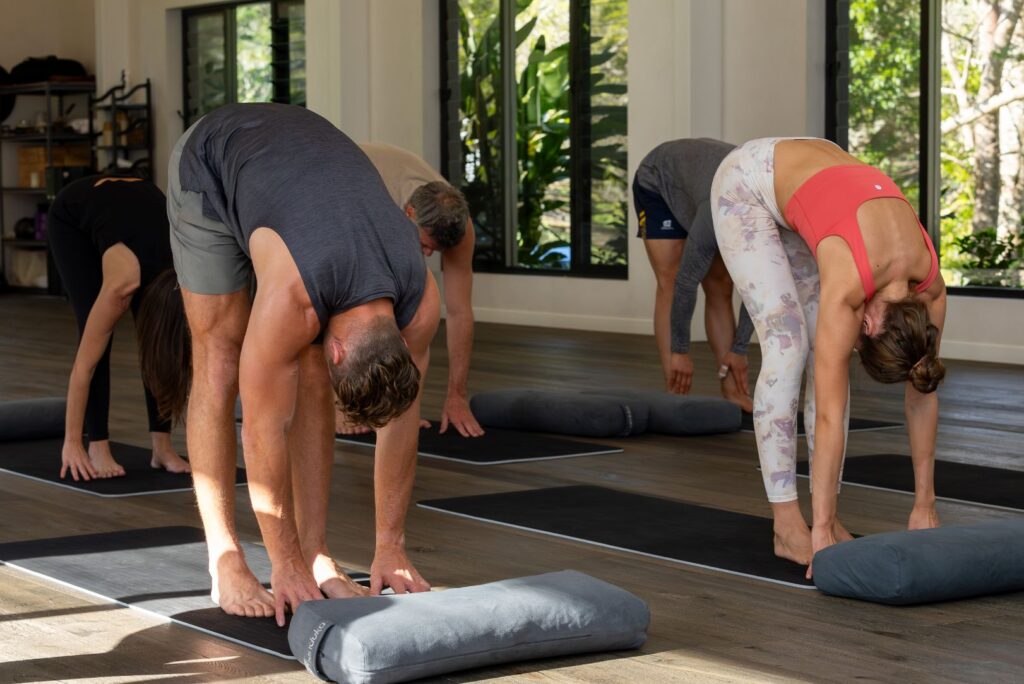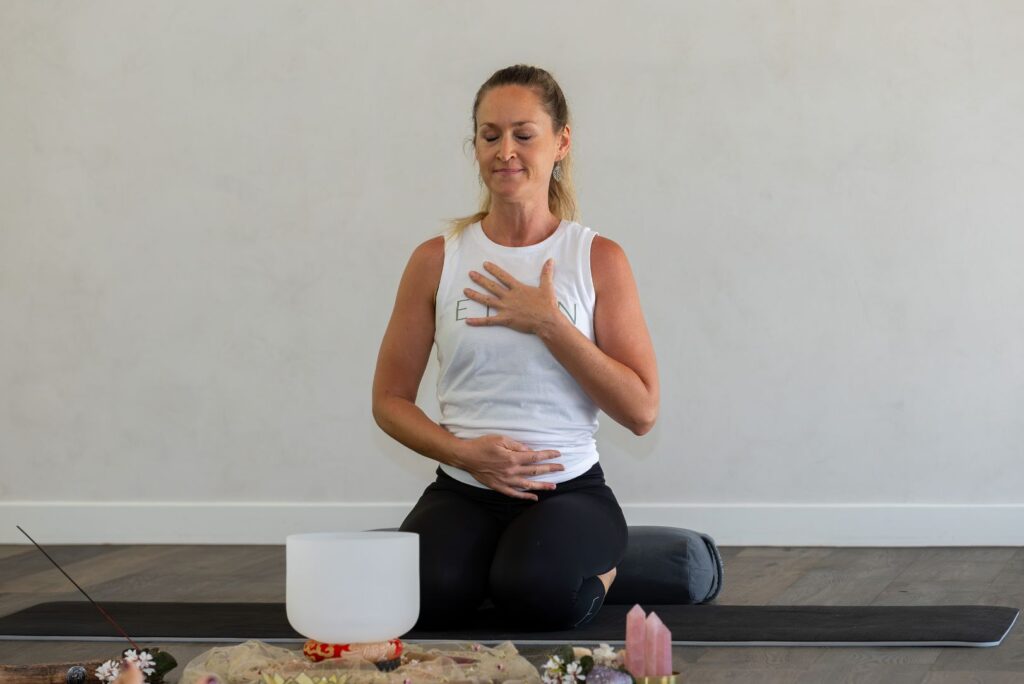Whether it is work pressures, personal responsibilities, or unexpected challenges, for many of us, stress is a common and accepted part of our daily lives. While low levels of stress are generally manageable in the short-term, it is important to learn how to effectively deal with stress to maintain your mental and emotional well-being in the long term, as well as on a daily basis.
The most recent research amongst Australians has found that more than 59% of the adult population has experienced a stressful experience in the past twelve months. And while some stress can be positive – it can motivate you, challenge you and inspire you – it is the extended, longer periods of pressure that can have a negative effect on your emotional, mental, and physical health. Fortunately, there are various techniques that can help you navigate stress and cultivate a calmer mindset. Here are some practical strategies for dealing with stress.
How to deal with stress
Step One: Identify Your Stress
The first step in effectively managing stress is to identify the sources of stress in your life. Take some time to reflect on what triggers your stress response, whether it’s work deadlines, relationship issues, or financial concerns. Once you understand your stressors, you can begin to develop strategies for addressing them.
One such strategy may be to prioritise your stressors. For instance, if the housework feels overwhelming, do you have to tidy it right away? Can work deadlines be extended? Who can you ask for help about your specific concerns?
You may find that writing down your worries, then matching each stressor with a possible outside supporter can go some way to removing the overwhelming feeling of responsibilities – and therefore reduce stress.
Step Two: Practice Relaxation Techniques
Incorporating relaxation techniques into your daily routine can help reduce stress levels and promote a sense of calm. Techniques such as deep breathing exercises, progressive muscle relaxation, and guided imagery can help alleviate physical tension and quiet the mind.
Find relaxation methods that resonate with you and make them a regular part of your self-care routine. Consider your relaxation methods as your mind and body’s way to warm up to deal with the inevitable stressors throughout the day. You wouldn’t run a marathon without first warming up your muscles, would you?
Mindful meditation and relaxation practices are your way to gently ease yourself into your daily routine without becoming overwhelmed by stress.
Step Three: Engage in Regular Physical Activity
Carrying on with the subject of marathons, exercise is a powerful antidote to stress, as it releases endorphins that boost mood and reduce feelings of anxiety. You don’t need to run long distances if you don’t enjoy it – any movement will have a positive impact in helping you deal with stress.
Aim to incorporate regular physical activity into your routine, whether it is going for a walk, practising yoga, or a workout at the gym. Find activities that you genuinely enjoy and that help you unwind.
You might like to discover more about future-proofing your mind and body through exercise.
If finding time to exercise is an issue, simply head outdoors. Just ten minutes of exposure to nature is enough to help lower blood pressure, reduce anxiety, and improve your mood and focus.

Step Four: Practice Mindfulness and Meditation
Mindfulness and meditation techniques can help cultivate a present-focused awareness that can reduce stress and promote a sense of inner peace.
Take time each day to practice mindfulness meditation. One very effective way of bringing your attention to the present moment is through the power of breathing.
Podcasts can also be immensely useful to guide you through stressful periods of the day. Eden Health Retreat has produced various podcast episodes on topics such as digital detoxes, better sleep and food and nutrition. Finding the right episodes for you can help quiet the mind, reduce racing thoughts, and create a greater sense of calm amidst life’s challenges.
At times when your mind is racing and you feel overwhelmed with stress, you can find immediate comfort in squeezing your thumb with your opposite hand. You can move onto each finger, noticing your pulse as your body and mind connect. This ancient Japanese hand technique is simple to do and can be done at any time.
Step Five: Seek Social Support
Connecting with friends, family, or support networks can be extremely effective in providing the emotional support needed to help you deal with stress. Reach out to trusted loved ones to share your feelings and concerns and lean on them for support and encouragement.
Talking to others can help alleviate feelings of isolation and provide perspective on challenging situations. These feelings may become prevalent if you’re feeling particularly stressed and busy with everyday life.Combine some of the above techniques by regularly meeting a friend for a ‘walk and talk.’ This way you’ll move your body whilst reducing any worries on your mind.
Step Six: Prioritise Self-Care
Self-care is essential for managing stress and maintaining overall well-being. Make time for activities that nourish your body, mind, and soul, whether it’s practising a hobby, spending time in nature, or enjoying a relaxing bath.
At Eden, we invite our guests to prioritise time for massage, facials, sound bowl healing and nature walks as part of our self-care techniques. Make time for activities that bring you joy and relaxation and be gentle with yourself during times of stress.

Step Seven: Zen on a Plate
You are what you eat, so ensure your daily meals are filled with nature’s goodness.
Focus on protein, wholefoods, fresh fruit, and vegetables and plenty of water. While no one food will give you immediate relief from stress, a diet filled with certain minerals, vitamins and antioxidants may help to relieve the symptoms of stress.
Choose avocados, eggs, blueberries, spinach, kale, yoghurt, nuts and seeds avocadoes, oysters, and salmon. Take the time to eat mindfully and enjoy the process of preparing and eating your meals without the distraction of devices.
Managing stress is an ongoing process, and it’s okay to seek support from others when needed, or to take time out from a stressful situation if necessary.
By implementing these techniques for dealing with stress into your daily life, you will be able to cultivate and maintain a calmer mindset. With practice and patience, you can learn to navigate stress more effectively and cultivate greater resilience in the face of life’s challenges.





